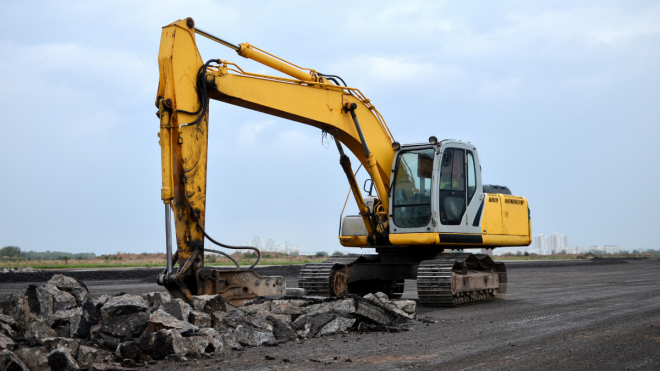Excavation & rock splitting: crucial for infrastructure! Break through rock challenges efficiently, safely, and quietly. Partner with experts for seamless project progress.
Strong natural barriers are frequently encountered when constructing infrastructure, such as utility networks, commercial foundations, roads, and bridges. Among the most difficult are rock formations, which, if not properly managed, can put projects on hold. At this point, the potent and cooperative effects of expert rock splitting and excavation methods become essential. When combined, these procedures open the door to advancement and guarantee that even the most ambitious building projects can proceed safely and effectively.
Beyond the Shovel: The Difficulty of Rock in Building
For moving soil and softer earth, traditional excavation techniques work very well. However, standard excavators are limited when they come into contact with large boulders or bedrock. It is ineffective, harmful to equipment, and dangerous to try to push machinery through solid rock. In order to continue excavation and the installation of essential infrastructure, this bottleneck calls for specialized techniques that can fracture and remove rock.
Ready to break ground on your next big project? Discover our full range of services that lay the groundwork for success.
The Combination of Rock Splitting and Excavating
In environments with a lot of rock, the real efficiency lies in the smooth transition between rock splitting and excavation. Instead of being stand-alone activities, these are a meticulously planned dance that dismantles obstacles in the construction industry.
- Precision Rock Splitting: Rock splitting techniques are used when solid rock is present. Rock splitting provides a controlled, quieter, and frequently more accurate way to break rock than blasting, which uses explosives and necessitates stringent safety measures and permits.
- Splitters that use hydraulics: These strong instruments create tremendous force that fractures the rock along its natural lines of weakness by using hydraulic pressure to expand wedges placed into pre-drilled holes. For urban settings or locations where noise and vibration must be reduced, this approach is perfect.
- Chemical Demolition Agents: Some expansive mortars that do not explode can be poured into holes that have been drilled. These substances react and expand over time, creating a great deal of pressure that eventually causes the rock to fracture and disintegrate. This technique is ideal for delicate settings because it is extremely silent and vibration-free.
- Effective Excavation: The focus of excavation changes from fighting a solid mass to effectively removing broken material after the rock has been split into manageable pieces. The site can then be prepared for the following stage of construction by simply clearing the broken rock with excavators fitted with hydraulic hammers (breakers) or heavy-duty buckets. This cooperative approach guarantees ongoing development, reduces downtime, and maintains project timeliness.
Did You Know?
That contemporary hydraulic rock splitters are perfect for delicate urban infrastructure projects because they can quietly fracture even the hardest rock and concrete without the use of explosives thanks to forces exceeding 400 tons?
For any infrastructure project to be completed smoothly, difficult rock formations must be successfully navigated. At RFC Excavating & Landscape Construction, we combine unmatched proficiency in cutting-edge rock splitting methods with precision excavation. Regardless of the geological challenges, our dedication to safety, effectiveness, and environmental responsibility guarantees that your project will proceed without hiccups from inception to completion. For all of your building requirements, we take great satisfaction in providing sturdy foundations and unobstructed pathways.
Don’t let rock stand in the way of your infrastructure goals. Call RFC Excavating & Landscape Construction at (973) 304-0500 today for a consultation!
Commonly Asked Questions
Can excavators break rock without splitting it?
A: Large, solid bedrock or extremely hard rock formations frequently require specialized rock splitting techniques first, even though excavators fitted with hydraulic hammers (breakers) can break some types of softer rock or small boulders. It is ineffective and risky to try to push an excavator through such material. By breaking the rock into manageable pieces, rock splitting speeds up and improves the safety of subsequent excavation.
How can one choose the most effective rock splitting technique for a project?
A: The type and hardness of the rock, its depth, its proximity to existing structures, environmental factors (noise, vibration), and financial constraints all influence the optimal rock splitting technique. Whether it is chemical demolition, hydraulic splitting, or a mix of techniques, our professionals perform a comprehensive geological analysis and site assessment to suggest the most appropriate and economical approach.

 (973) 304-0500
(973) 304-0500


